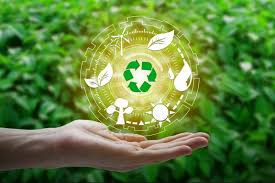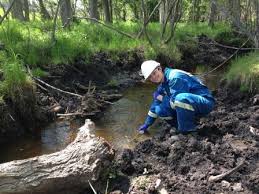Improving Industrial Waste Management in Egypt: Solutions and Challenges
Industrial waste management is a crucial aspect of maintaining a sustainable and healthy environment. In Egypt, the management of industrial waste presents both solutions and challenges. Effectively addressing industrial environmental consulting firms waste management in Egypt is vital for promoting sustainable development and protecting public health. This paper examines the current state of industrial waste management in Egypt, explores potential solutions, and discusses the challenges that hinder effective waste management practices.
Improving industrial waste management in Egypt requires comprehensive solutions and faces various challenges. Some potential solutions include implementing environmental consulting services strict regulations and enforcement, promoting waste reduction and recycling practices, investing in waste treatment technologies, and increasing public awareness. However, challenges such as inadequate infrastructure, limited resources, and lack of awareness and compliance among industrial stakeholders hinder these efforts. Collaborative efforts between the government, industries, and the public are crucial to address these challenges and improve industrial waste management in Egypt.
Challenges of Industrial Waste Management in Egypt

Industrial waste management in Egypt faces numerous challenges, including inadequate infrastructure for waste disposal, limited human and financial resources for waste management, and a lack of proper regulations and enforcement. Additionally, there is a need for better coordination and cooperation between government entities, industries, and the public to ensure effective waste management practices. Other challenges include the lack environmental inspection services of public awareness and participation in waste reduction and recycling efforts, as well as the improper handling and disposal of hazardous industrial waste. Overall, addressing these challenges will require comprehensive planning, investment, and collaboration between various stakeholders to improve industrial waste management in Egypt.
The Importance of Sustainable Industrial Waste Management in Egypt
environmental consulting firms

Sustainable industrial waste management in Egypt is crucial for the country's environmental and public health. The rapid industrialization and urbanization in Egypt have led to a significant increase in industrial waste generation, posing a serious threat to the environment and human well-being. Effective waste management practices can help reduce pollution, conserve natural resources, and protect ecosystems. By implementing sustainable waste management strategies, such as recycling, waste reduction, and proper disposal, Egypt can minimize the negative impact of industrial waste on the environment and public health. Furthermore, sustainable industrial waste management can also create economic opportunities by promoting the development of recycling industries and the production of alternative energy sources from waste. This can contribute to job creation and stimulate economic growth. It is essential for the Egyptian government to prioritize sustainable industrial waste management by enforcing strict regulations, investing in waste treatment facilities, and promoting public awareness and education about responsible waste management practices. Collaboration between government, industry, and the community is crucial for achieving a sustainable and healthy environment for current and future generations in Egypt.
The Role of Technology in Industrial Waste Management in Egypt

The role of technology in industrial waste management in Egypt has become increasingly important in recent years. With the growth of industrial activities in the country, the generation of waste has also increased, posing significant environmental and health hazards. Technology plays a crucial role in managing industrial waste in Egypt by providing advanced methods for waste collection, treatment, and disposal. This includes the use of advanced equipment for waste segregation, recycling, and incineration, as well as the implementation of modern waste management systems and software for better monitoring and control. Moreover, technological advancements have led to the development of more sustainable and efficient waste management practices, such as the use of renewable energy sources for waste treatment and the implementation of innovative waste-to-energy technologies. Furthermore, the integration of technology in industrial waste management has also improved the overall environmental performance of industries in Egypt, helping them comply with regulatory standards and reduce their environmental footprint. Overall, the role of technology in industrial waste management in Egypt is essential in addressing the challenges posed by the increasing volumes of waste generated from industrial activities, and in promoting more sustainable and environmentally friendly waste management practices.
Regulatory Framework for Industrial Waste Management in Egypt

The regulatory framework for industrial waste management in Egypt is primarily governed by the Egyptian Environmental Affairs Agency (EEAA) and the Ministry of Environment. The EEAA is responsible for enforcing environmental laws and regulations, issuing permits for waste management activities, and monitoring compliance with environmental standards. Industrial waste management in Egypt is governed by several laws and regulations, including the Environmental Law No. 4 of 1994, which sets forth the general principles for environmental protection and waste management. Additionally, the Law on the Control of Hazardous Substances and Hazardous Waste No. 4 of 1994 regulates the handling and disposal of hazardous waste generated by industrial activities. Companies in Egypt are required to obtain permits from the EEAA for the collection, transportation, treatment, and disposal of industrial waste. The permits outline the requirements for waste management practices, including the proper handling and disposal of hazardous and non-hazardous waste. In recent years, there has been an increased focus on promoting sustainable waste management practices and increasing the recycling and reuse of industrial waste in Egypt. The government has implemented initiatives to encourage industries to adopt more environmentally friendly practices and to invest in waste treatment and recycling facilities. Overall, the regulatory framework for industrial waste management in Egypt is aimed at protecting the environment and public health by ensuring that waste is handled and disposed of in a safe and sustainable manner. Compliance with environmental regulations is essential for industrial businesses operating in Egypt to avoid penalties and ensure the long-term sustainability of their operations.
Innovative Approaches to Industrial Waste Management in Egypt
Innovative approaches to industrial waste management in Egypt include the implementation of advanced technologies for waste treatment and recycling, the development of sustainable waste disposal methods, the promotion of circular economy practices, and the establishment of stricter regulations for waste management in industrial facilities. Additionally, there is a growing emphasis on the utilization of renewable energy sources and the application of cleaner production processes to minimize waste generation in the industrial sector. These efforts aim to address the environmental and health hazards associated with industrial waste while also maximizing the recovery and reuse of valuable resources.
Public Awareness and Community Engagement in Industrial Waste Management in Egypt
Public awareness and community engagement in industrial waste management in Egypt play a crucial role in addressing environmental and public health concerns related to waste disposal. The involvement of the public in this process helps to raise awareness about the impact of industrial waste on the environment and human health. Additionally, community engagement can lead to the adoption of sustainable waste management practices and the development of collaborative efforts between industries, local authorities, and the public. By promoting public awareness and engagement, Egypt can effectively address the challenges associated with industrial waste management and work towards creating a cleaner and healthier environment for its citizens.
Collaborative Efforts for Industrial Waste Management in Egypt
Collaborative efforts for industrial waste management in Egypt have been gaining momentum in recent years. The government, private sector, and non-governmental organizations have been working together to address the challenges associated with industrial waste. This has resulted in the implementation of various initiatives and programs aimed at reducing the environmental impact of industrial activities, promoting sustainable practices, and ensuring compliance with waste management regulations. Additionally, there has been a focus on raising awareness and building capacity among industrial stakeholders to effectively manage and minimize the generation of waste. These collaborative efforts are crucial in mitigating the negative effects of industrial waste on the environment and public health in Egypt.